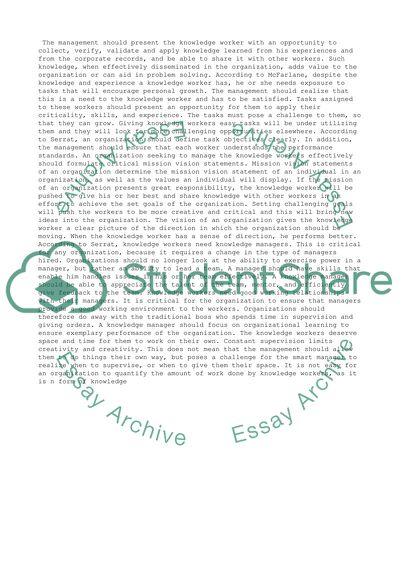Cite this document
(“Challenge is Managing the People Who Manage Knowledge Essay”, n.d.)
Challenge is Managing the People Who Manage Knowledge Essay. Retrieved from https://studentshare.org/management/1438545-challenge-is-managing-the-people-who-manage
Challenge is Managing the People Who Manage Knowledge Essay. Retrieved from https://studentshare.org/management/1438545-challenge-is-managing-the-people-who-manage
(Challenge Is Managing the People Who Manage Knowledge Essay)
Challenge Is Managing the People Who Manage Knowledge Essay. https://studentshare.org/management/1438545-challenge-is-managing-the-people-who-manage.
Challenge Is Managing the People Who Manage Knowledge Essay. https://studentshare.org/management/1438545-challenge-is-managing-the-people-who-manage.
“Challenge Is Managing the People Who Manage Knowledge Essay”, n.d. https://studentshare.org/management/1438545-challenge-is-managing-the-people-who-manage.


